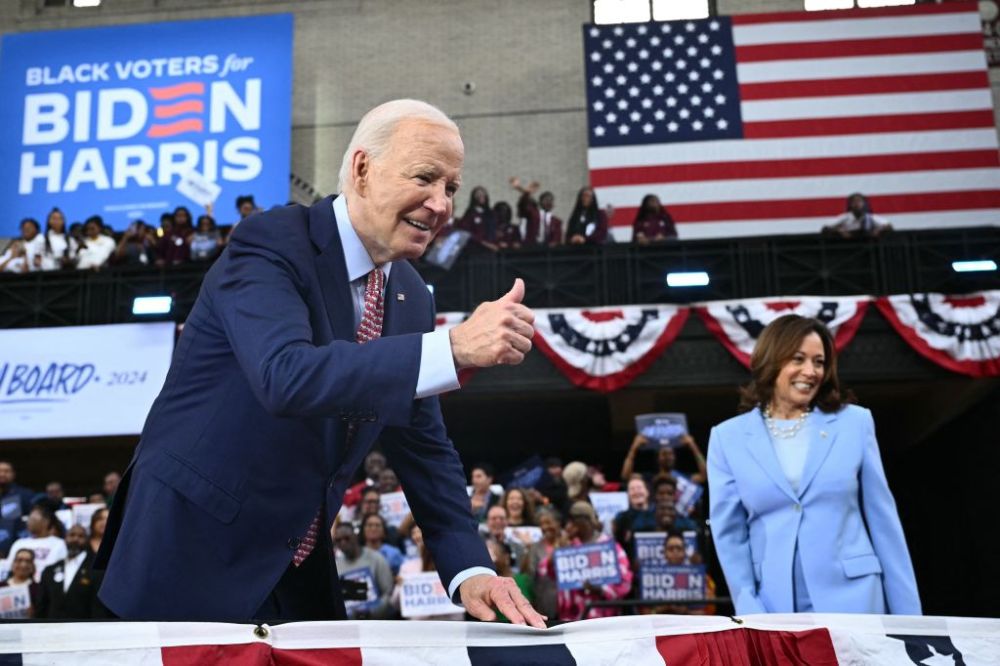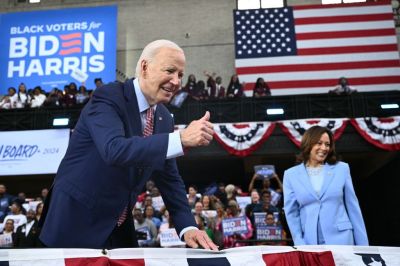Dear Reader (except those of you letting your snakes roam),
H.L. Mencken once said of Harry Truman, “If there had been any formidable body of cannibals in the country he would have promised to provide them with free missionaries, fattened at the taxpayer’s expense.”
It was a joke, but let’s take it seriously for a moment. What would that look like? Would Truman propose legislation? “You’ve heard of the New Deal and the Fair Deal. Well, my fellow Americans, I am today proposing the Square Meal. …” Would Congress hold hearings, with witnesses and expert testimony from cannibals? Or would Congress give Truman the cold shoulder, prompting his new loyal constituents to shout, “Hey give it to us, we’ll eat it!” And where would Truman get the missionaries? He promised a Jesuit in every pot, but the cannibals prefer Friars—for that crispy texture.
Okay, as the cannibal said when eating a clown, “Weird, this isn’t very funny—enough of this.”
I think of Mencken’s quip every time I watch politicians shamelessly pander to voters. And given that the nightly news might as well begin every night with Brian Fantana shouting “Pander Watch!” I think of that line a lot these days. As Reason’s Eric Boehm notes, this election is turning into a “cynical pander-off.”
Oh, before you give me grief for the crude wordplay, political nerds will remember that Paul Tsongas did it first when he called Bill Clinton a “pander bear,” who “will say anything, do anything to get votes.”
Pander’s a funny word. Etymologically, its roots are in, well, pimping—an “arranger of sexual liaisons, one who caters for the lusts of others.” In the 1600s, the word starts to take on a broader meaning, “to indulge (another), to minister to base passions, cater for the lusts of others.” Pandering, in other words, begins as the job description of pimps. So, one could say that then-Gov. Bill Clinton’s state troopers pandered to the pander bear. You can see the relationship between pandering and populism, in that so much of populism amounts to just giving—or promising to give—people stuff they want. It’s a form of appeasement of base desires, asking for nothing—other than a vote—in return.
Most of Donald Trump’s most egregious (recent) panders are of the missionary-in-every-pot variety. He announced on Truth Social, “SENIORS SHOULD NOT PAY TAX ON SOCIAL SECURITY!” Before that, he declared that no one should pay taxes on tips, as a sop to Nevada voters. In June, in an effort to woo Robert F. Kennedy Jr. voters, he promised to cut funding for all vaccine mandates in schools.
When President Joe Biden was still the presumptive nominee, he had the temerity to accuse Trump of pandering. I mean he was right, but the idea that Joe Biden has some principled objection to pandering is like saying he has a principled objection to breathing. Joe Biden has been a panderer his whole political career. His entire presidency was an extended exercise in pandering. The debate over whether he picked Kamala Harris as a “DEI candidate” is a bit of a sideshow. What is really beyond dispute is that it was a sop to the black voters—and black powerbrokers—who secured the nomination for him. You don’t need to wade into DEI and intersectionality crap to acknowledge that. And you can defend that on time-honored political grounds—vice presidents are always picked to placate a constituency of some kind.
Biden’s hagiographers cite his “massive” legislative accomplishments as proof of his greatness. I can concede that getting his agenda through a dysfunctional and polarized Congress is a fair metric of presidential success. But what bothers me about the way people say this proves he was great is that so much of his agenda constituted debt-financed bribery. He gave billions to favored industries, big cities, and teachers’ unions! How courageous! His attempts to buy the loyalty of certain voters by paying off their student loans is precisely the sort of thing that arouses Menckenesque quips about bribing cannibals.
In the weeks after the June 27 presidential debate, when his candidacy was in mortal peril, Biden promised whatever he could think of to the progressive base of the party. That’s the origin of his epic flip-flop on court packing (Charlie Cooke wields the receipts on this score like a Bangkok bookie holding betting slips at a Russian roulette duel).
Indeed, the flip-flop is a quintessential form of pandering. More moderate voters want something, so you give it to them, even if it means reversing your position on, say, abortion. The off-the-cuff flip-flop is perhaps the most pristine form of pander, because it’s offered in the heat of the moment to please whoever is lobbying you in the moment, like when Trump recently told some tech bro podcasters that he wanted to give every college graduate an automatic green card.
Similarly, Trump’s defenestration of Project 2025 was a pander to the middle. As Boehm puts it in Reason, the message of the campaign’s backstabbing of its de facto policy shop: “How dare anyone try to substitute actual policy substance for whatever random thought might fall out of the former president's head on a Wednesday morning?”
As I wrote last week—and a thousand other times—none of this should surprise anyone about a candidate whose formative life experience was saying to customers, “What do I have to do to put you in this condo today?”
Hell, Trump actually sells flip-flops.
Anyway, Kamala Harris—following the advice of some of us—has been doing some Simone Biles-level flip-flopping. So far, she’s switched positions on fracking, guaranteed jobs, border enforcement funding, Medicare for All, defunding the police, and at least parts of the Green New Deal. And while I think it’s appalling that the press isn’t demanding some explanations for her sudden sprint to the middle and away from long-held positions, I love the implicit indictment of the progressive left’s worst ideas.
Pimping Socialism
But enough with the punditry. Indeed, one could accuse me of pandering to the demands of readers who can’t get enough of the stuff these days.
Instead, let’s talk about the real problem with pandering.
The other day, the New York Times offered this analysis of Venezuela’s plight (emphasis added):
If the election decision holds and Mr. Maduro remains in power, he will carry Chavismo, the country’s socialist-inspired movement, into its third decade in Venezuela. Founded by former President Hugo Chávez, Mr. Maduro’s mentor, the movement initially promised to lift millions out of poverty.
For a time it did. But in recent years, the socialist model has given way to brutal capitalism, economists say, with a small state-connected minority controlling much of the nation’s wealth.
Talk about getting the causality backward. I don’t have the room or the energy to wade deep into Venezuela’s recent history or a lot of political theory. I don’t disagree with anything Robby Soave or Alex Tabbarok say about this remarkable self-own by the Times. But the familiar arguments—arguments I love to wallow in—are unnecessary here. Chavismo—like Castroism and a thousand related isms—had less to do with theory than people who love to argue about theory like to believe.
Simply put, it’s all about pandering. In the democratic age, power is derived from the people. This can be good or bad. Demagogues are dependent on the same demos as democrats. The difference between a democrat and a demagogue is that the democrat holds himself accountable not just to “the people” but to the rules. I am not going to indulge in another disquisition on the differences between a republic and democracy—because you can’t have one without the other, for long—but what makes a republic a republic is the idea that democratically accountable leaders are also beholden to rules beyond the momentary, and often unreflective, demands of the people. A statesman cares about moral hazards, trade-offs, costs as well as benefits. The statesman is totally open to the idea that the people are wrong and need to be educated about a particular issue.
The demagogue doesn’t care about any of that noise. The populist knows what his people want and he promises to give it to them, the rules be damned. Sometimes populists and demagogues—to the extent there is a difference—offer fancy arguments about socialism, or fascism, or modern monetary theory, or systemic this, that, or the other thing. Sometimes they just play on fears and base desires.
That’s why I offered that Dad-jokey thought experiment about taking Mencken seriously. Politicians pander all the time, promising nonsense they can’t possibly deliver under our system of government, thank God. That’s because the rules say that no matter what a president promises to do, once elected he has to—or at least is supposed to—get approval from Congress and the courts. Promise all the fattened missionaries—or gibbeted billionaires, exiled illegal immigrants, or gelded Supreme Court justices—you want, the president can’t do that stuff without following the rules.
At the end of the day, liberal democratic capitalism is just a bunch of rules. Those rules have some give in them. But they can only be stretched so far before they snap, and the whole thingamabob starts to break down. I don’t give a rat’s ass what some Chomskyite theorists think about Chavismo, or socialism, really is. The fact is that when demagogues in power—whether individual dictators or cabals of radical theorists—think they’re smarter than, or otherwise unconstrained by, the rules they end up ruling like monarchs or aristocrats. They may still pander to their favored mobs, but their political system and political economy starts to be nothing more than a system of organized theft.
That’s what happened in Venezuela—and Cuba, the Soviet Union, contemporary Russia, North Korea, and if current trends continue China, as the sun sets on its holiday from Maoism. This is the great switcheroo of all the socialist theorists. They think rules are really important, but whenever their proposed rules are implemented they don’t work and they immediately say, “Well, we didn’t mean those rules.” That’s because when you establish a “system” that throws out the rules of markets, prices, the rule of law, democracy, etc., that system will eventually look indistinguishable from the rule of a big man or warlord. And when that failure becomes obvious, those theorists absurdly shout at their own failure, “Look, capitalism!” If only socialism had been really tried.
This aside isn’t a non sequitur. Pandering is just a word for the sort of corruption that always threatens democracy and republican government. Pandering is appeasement of mob sentiment and disdain for the rules that stand in the way of placating the mob. “Public opinion, in its raw state,” Mencken observed, “gushes out in the immemorial form of the mob’s fears. It is piped to central factories, and there it is flavored and colored, and put into cans.”
I agree that much of public opinion is organized around fear, but some of it is based in other, sometimes loftier but usually equally irrational, emotions. Hope and compassion can fuel pandering as much as fear and hate. But all such pandering operates on the false promise that solutions are easy and cost-free and that those who stand in the way of the realization of those promises are “Enemies” of “Us.”
Pandering, like populism, eschews making arguments or debating costs and benefits, in favor of immediate gratification. Republican democracy relies on leaders committed to persuading people on a course of action with facts and logic. Populist pandering skips all that. It replaces statesmanship with vibe-marketing.
I’ve been arguing for a long time that 2024 is a vibes election. Issues didn’t matter in the GOP primaries, and they didn’t matter when Biden was losing to Trump. Biden’s approval underperformed the popularity of his own most tightly held positions, including among Democrats, because voters had soured on the man. His vibe is just a bummer. Before the debate, Biden was betting that fear of Trump was enough—and it might have been. But the debate revealed that Dark Brandon was no great and terrible Oz. Biden tried to rectify that with more pandering, but he couldn’t defeat the vibe of a sunsetting old man.
Kamala Harris is surging because she has better vibes. But make no mistake, it’s still just a vibes election. She’s making no effort to argue for her new, better positions. And Donald Trump is yammering about fake blackness to force another vibe shift into existence. He might succeed, he might not. But it won’t look anything like statesmanship. It will just look like he came up with a new can of fear.
Various & Sundry
It’s been a bit of rough week for the dogs. We’ve had a lot of bad sky booms and the girls do not like it. They have remarkably different responses, aside from the shared panting. Pippa seeks shelter, closets, the space next to the washing machine, etc. Zoë thinks it’s vital that she stay close by the side of a human. Oh, whenever I talk about this, people suggest thunder shirts. We’ve tried it. It works for a while and then they just associate the strange garment with thunder. In other news, I’ve gotten permission from Declan to post pictures of Penny, the Garveys’ new Boykin spaniel puppy. If you haven’t seen her, you might want to get an insulin shot ready for the sweetness overload. Discussions are underway for a Pippa-Penny meet-up. We have to be careful though, because Zoë is not a big fan of the whippersnappers. But given that Pippa’s best friend—and a good buddy of Zoë—is Clover, another Boykin, we have high hopes. Zoë is fascinated by turtles, though. In other news, Pippa got a new shipment of tennis balls this morning and she’s very excited about it.







Please note that we at The Dispatch hold ourselves, our work, and our commenters to a higher standard than other places on the internet. We welcome comments that foster genuine debate or discussion—including comments critical of us or our work—but responses that include ad hominem attacks on fellow Dispatch members or are intended to stoke fear and anger may be moderated.
With your membership, you only have the ability to comment on The Morning Dispatch articles. Consider upgrading to join the conversation everywhere.